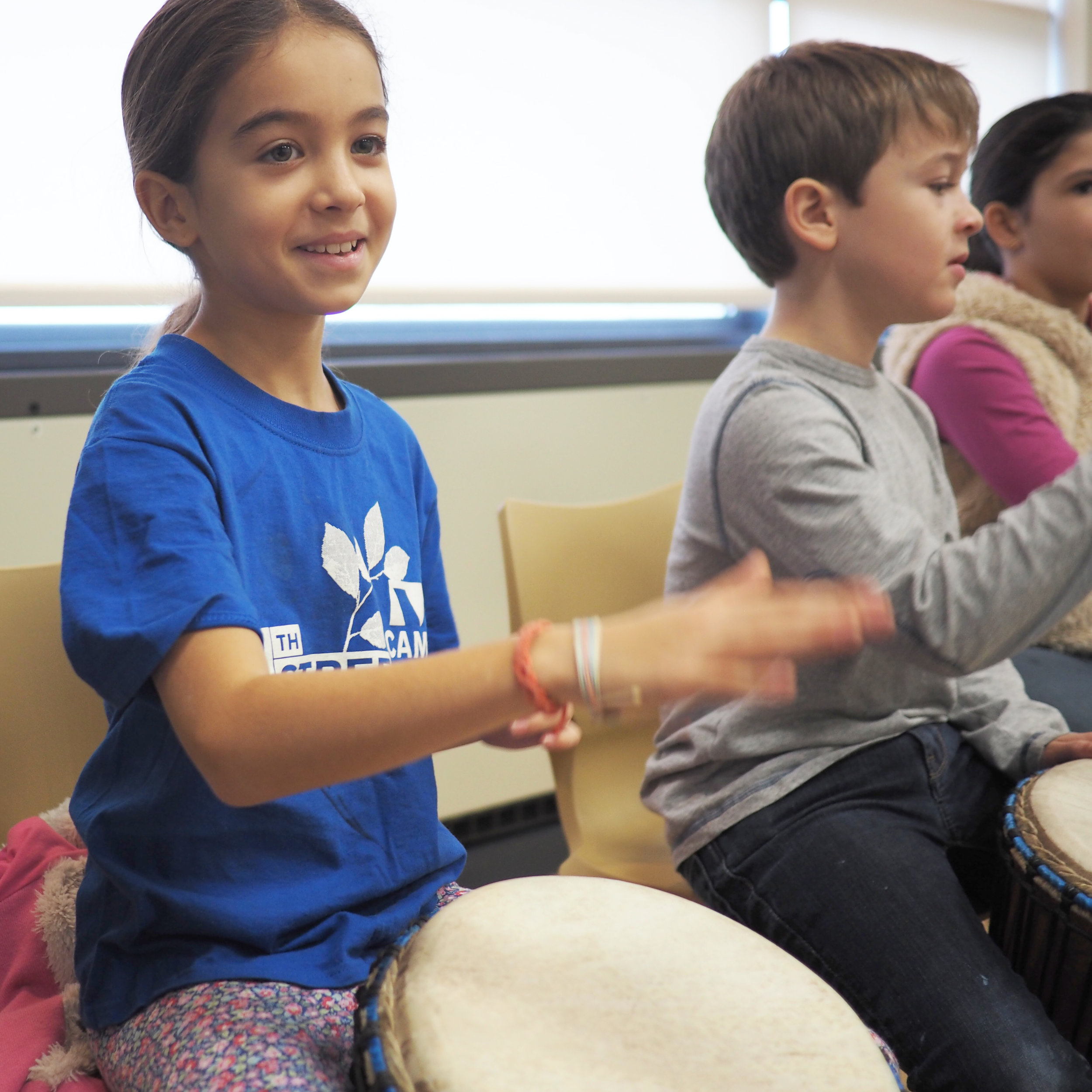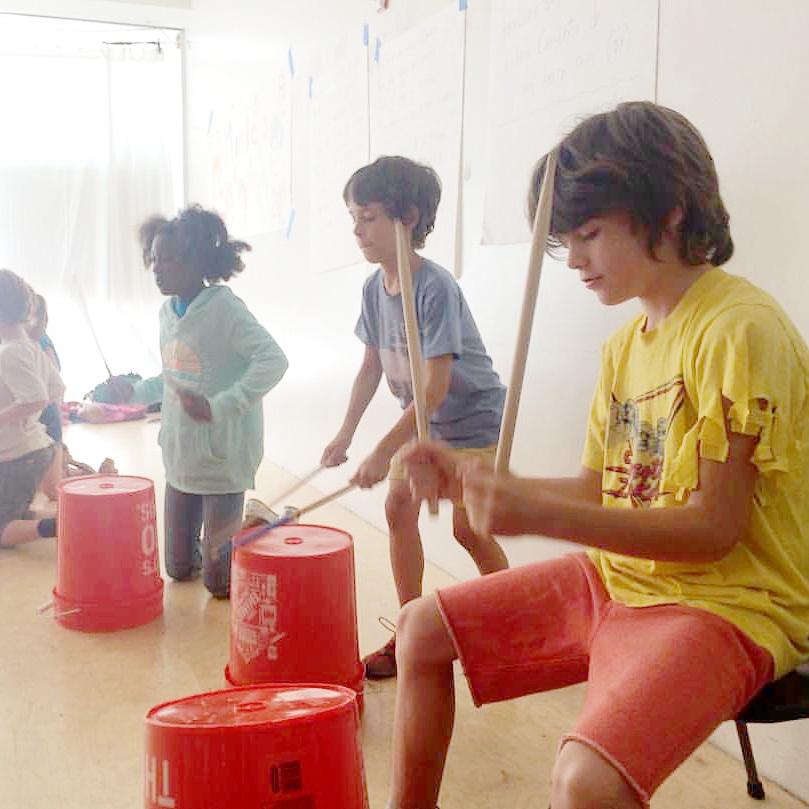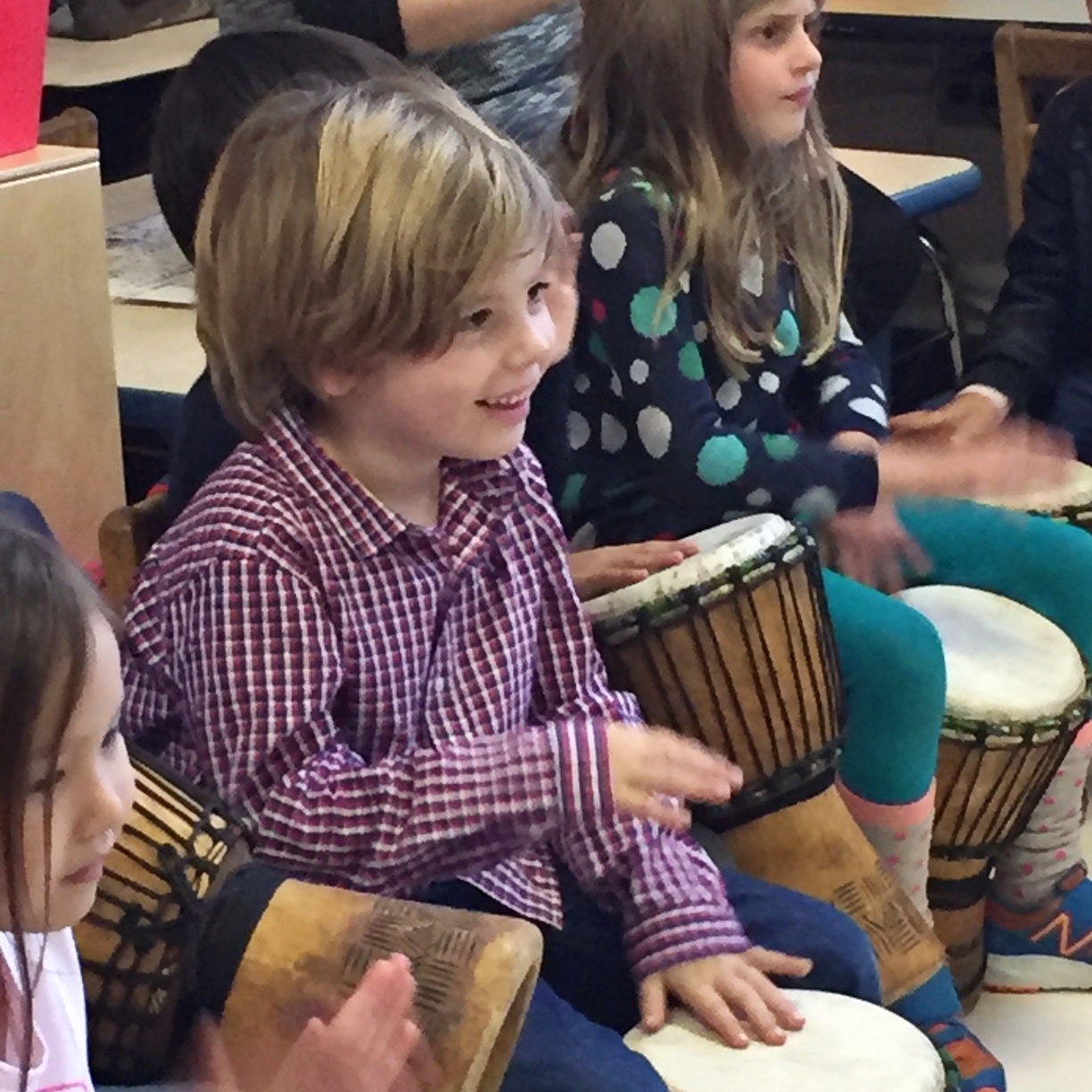Working with a professional drummer and teaching artist, classes will learn about and practice the polyrhythmic percussive techniques that make West African, Afro-Cuban, Brazilian, and New Orleans Jazz so powerful and mesmerizing. All residencies culminate with an exciting performance of the rhythms that the class has learned. Join the fun. No previous experience necessary!
West African drumming and rhythm is introduced to students in the third grade. Using student-size djembes and methods geared toward beginners, students learn the basics of West African rhythm and percussion. These include:
The culture and history of West Africa and the West African diaspora
Djembe technique—bass, tone, slap
The concept of polyrhythm
The variety of specific traditional rhythms
West African language and song
Rhythmic notation
Full body coordination
As in all excellent music programs, self-discipline and teamwork is prioritized through incremental learning in an inspiring environment.
West African djembe drumming becomes West African percussion ensemble with the introduction of dunduns (Bass drums) and tuned percussion instruments (xylophones, marimbas, etc). Fourth Grade students will enhance their djembe technique and will begin to develop an understanding of the structure and key components of West African musical ensembles. These include:
Djembe technique—improved sound quality of bass, tone, and slap
Basic mallet technique for tuned percussion
Introduction to dundun sticking technique
Strong focus on Polyrhythm in ensemble playing
A variety of specific traditional rhythms and melodies
West African language and song
Rhythmic notation and reading basic notated melodies
Self-discipline and teamwork
The development of the West African Percussion Ensemble continues and is enhanced with further emphasis on:
Advanced repertoire, incorporating more complex rhythmic arrangements, breaks and orchestrations
Djembe improvisation
Sound quality, dynamics, and tempo maintenance, throughout the ensemble
Group performance












